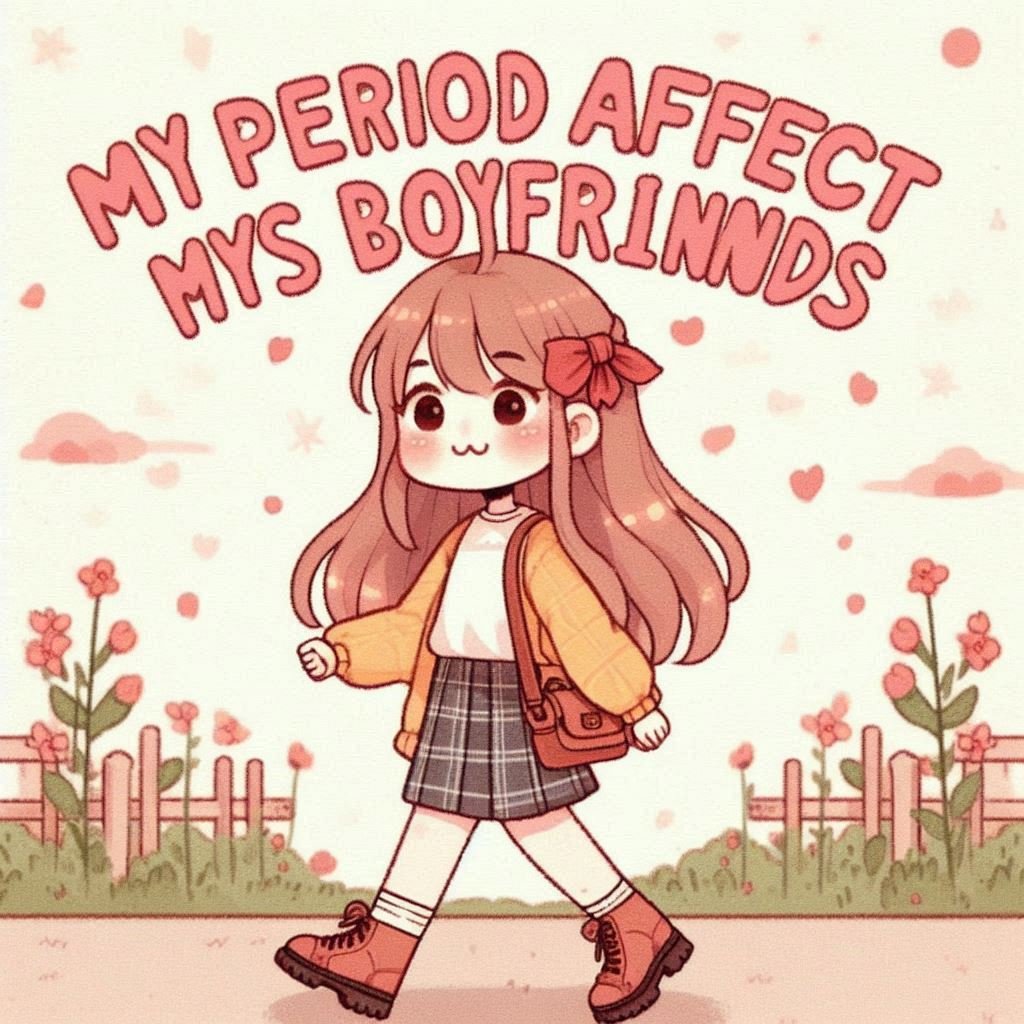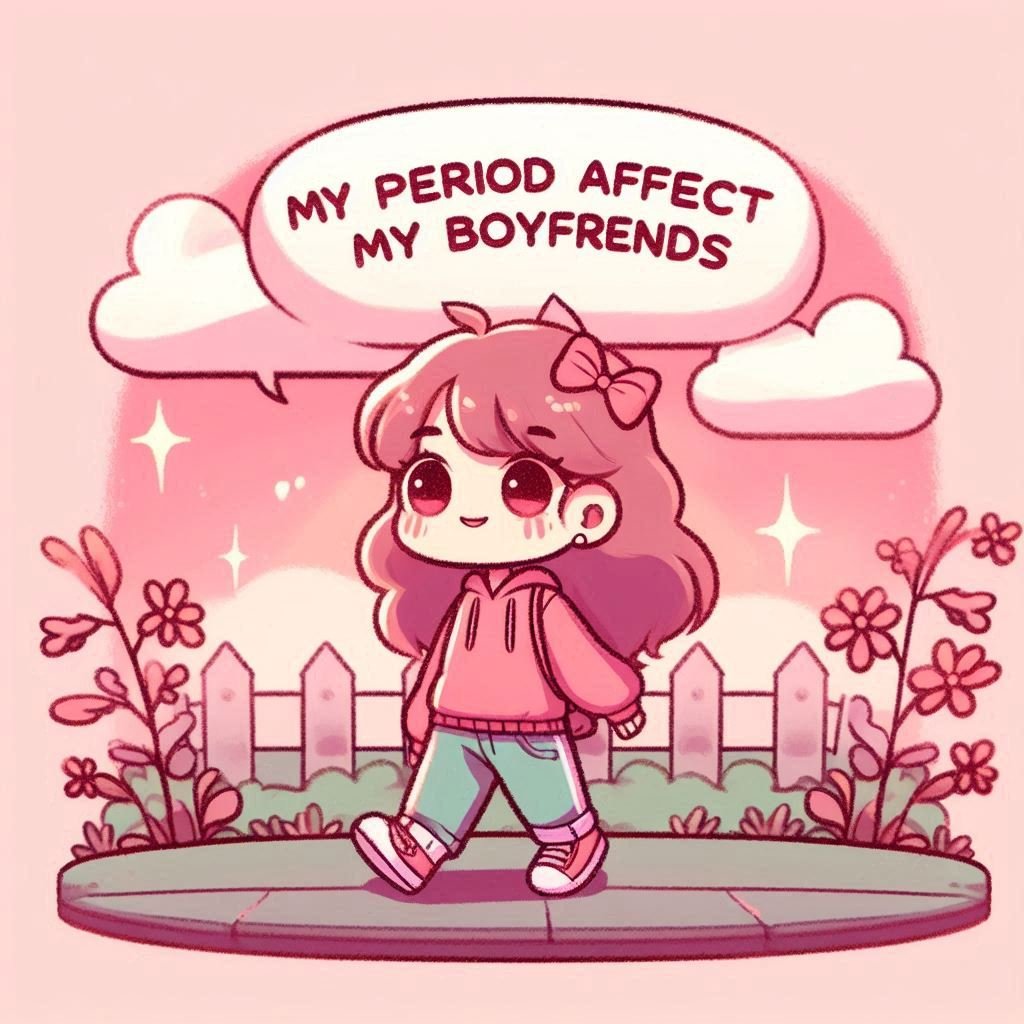Frequently Asked Questions – Wisher
How does my period affect my boyfriends?
When you’re on your period, it’s not just you who can be impacted; your boyfriend might also feel the effects in various ways. Periods can bring physical and emotional changes that, in turn, can influence the dynamic between you two. this Question is comes many time in mind, How does my period affect my boyfriends but don’t worry.
Your mood swings or irritability during this time can sometimes confuse or upset your boyfriend, especially if he’s not sure how to respond. It’s natural for him to feel a bit at a loss when your emotions fluctuate, but by talking openly and letting him know it’s the hormonal changes at play, you can avoid misunderstandings. Encouraging him to be patient and not take things too personally can help both of you navigate these moments.

Physically, you might not be in the mood for intimacy during your period, and that’s completely okay. Communicating your boundaries about what feels comfortable can prevent awkwardness. A respectful partner will understand if you’re not feeling up to being physically close and should appreciate your openness.
Periods can also bring out the supportive side in your boyfriend. He may want to help, even if he’s unsure how. By telling him simple ways he can provide comfort, like bringing you snacks or helping with chores, you can make him feel involved and appreciated. Acknowledging these efforts can actually strengthen your bond.
[expander_maker id=”1″ more=”Read more”]
Some studies suggest that men can emotionally sync with their partner’s cycle, but this isn’t a universal experience and may be coincidental. Regardless, keeping communication open and showing appreciation can help your boyfriend feel more connected to you, even when you’re on your period.
Why do i get is irritated with my boyfriend before my period?
It’s quite common to feel more irritated with your boyfriend in the days leading up to your period, and this is mostly due to the effects of hormonal changes and PMS symptoms. The days before your period, known as the luteal phase, can bring about noticeable shifts in mood and emotions, which can understandably impact your relationship.

During this time, your hormone levels particularly estrogen and progesterone drop significantly, which is one of the main reasons behind mood swings and irritability. These fluctuations also affect serotonin levels, the hormone that helps regulate mood. With lower serotonin, you might find yourself feeling more easily frustrated or anxious, sometimes snapping at things that normally wouldn’t bother you.
Physical discomfort caused by PMS symptoms, such as bloating, cramps, or headaches, can further fuel irritability. When you’re not feeling your best, it’s natural to have a shorter temper or feel more sensitive. Unfortunately, your boyfriend might unintentionally bear the brunt of this if small things start to trigger stronger reactions.
[expander_maker id=”1″ more=”Read more”]
These emotional changes can strain relationships, especially if your boyfriend doesn’t fully understand the reasons behind your mood shifts. If there’s a lack of communication, tensions may rise. Being open about how you’re feeling and what you need during this time can help reduce conflict. It’s important to remind both yourself and your partner that these feelings are temporary and often improve once your period begins.
Using coping strategies, seeking support from your partner, and possibly consulting a healthcare professional for severe symptoms can help ease the strain during this phase.
How do guys react to period?
Men’s reactions to periods can vary widely, shaped by their knowledge, experience, and personal attitudes toward menstruation. Understanding these reactions helps foster more open communication and support within relationships.

For some men, periods are a source of confusion or discomfort due to a lack of education. Growing up, many boys may hear about periods through jokes or teasing, which doesn’t prepare them for real-life conversations about menstruation. This can lead to awkwardness or unease when they encounter it with a partner. One common theme is a sense of shock or discomfort when men first learn about the details of periods, highlighting the need for better education around this natural process.
[expander_maker id=”1″ more=”Read more”]
On the other hand, some men respond to menstruation with empathy and support. When they take the time to understand what their partner is going through, they can offer comfort, whether through physical care like massages or emotional support. These supportive responses often strengthen relationships, as partners feel understood and cared for during a challenging time. This kind of understanding usually comes from open conversations and a willingness to learn.
In contrast, there are men who prefer to avoid the subject altogether, seeing menstruation as a private matter. These men may acknowledge periods but feel no need to discuss them or get involved. This response often stems from discomfort or simply not understanding how to offer help.
Lastly, men’s emotional reactions can also be influenced by their partner’s mood during her period. If a woman is more irritable or sensitive, her partner may feel confused or frustrated, particularly if communication is lacking.
Ultimately, open conversations about menstruation can lead to greater understanding and empathy. Education is key in helping men move past discomfort and become more supportive partners.
[/expander_maker]



